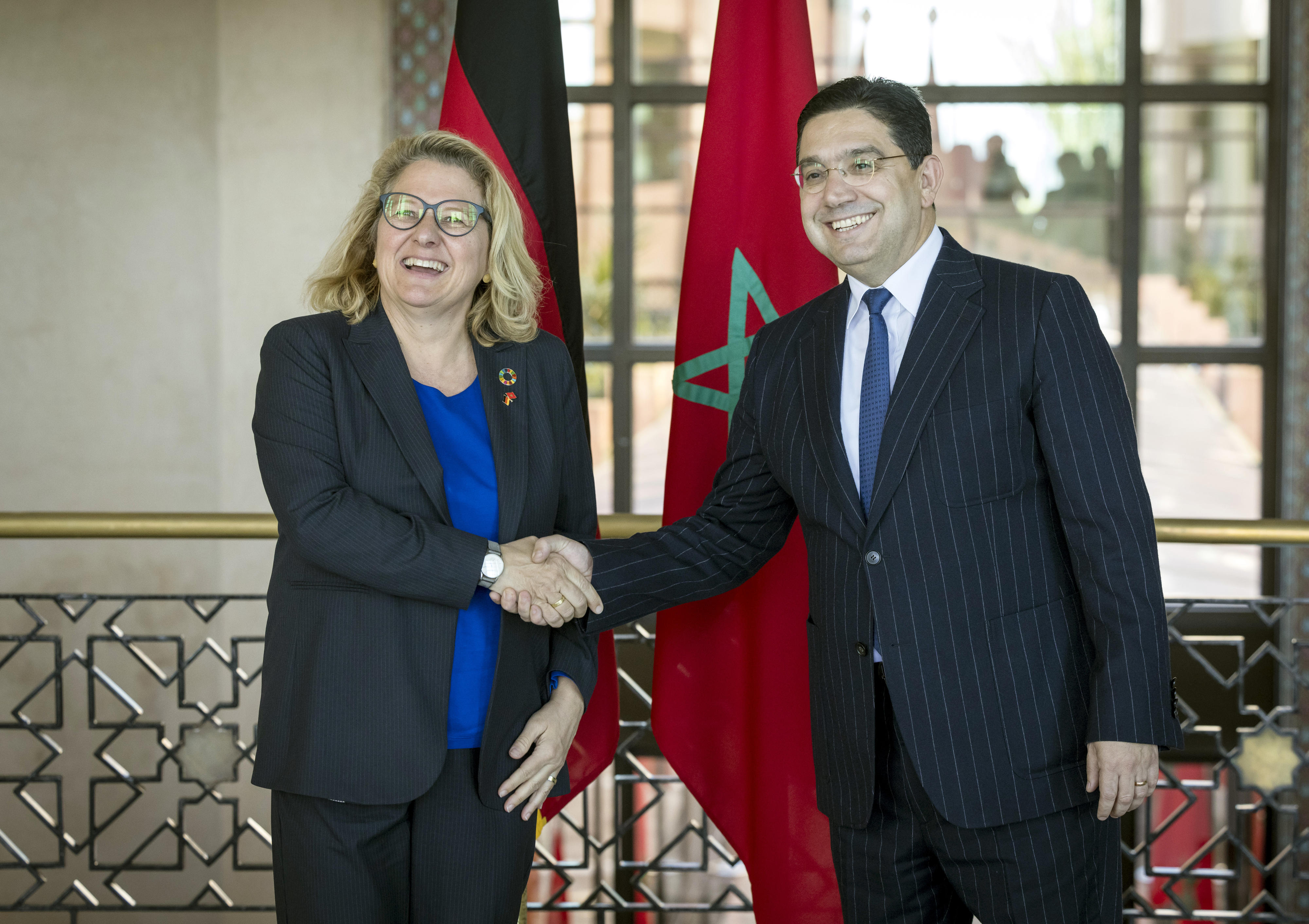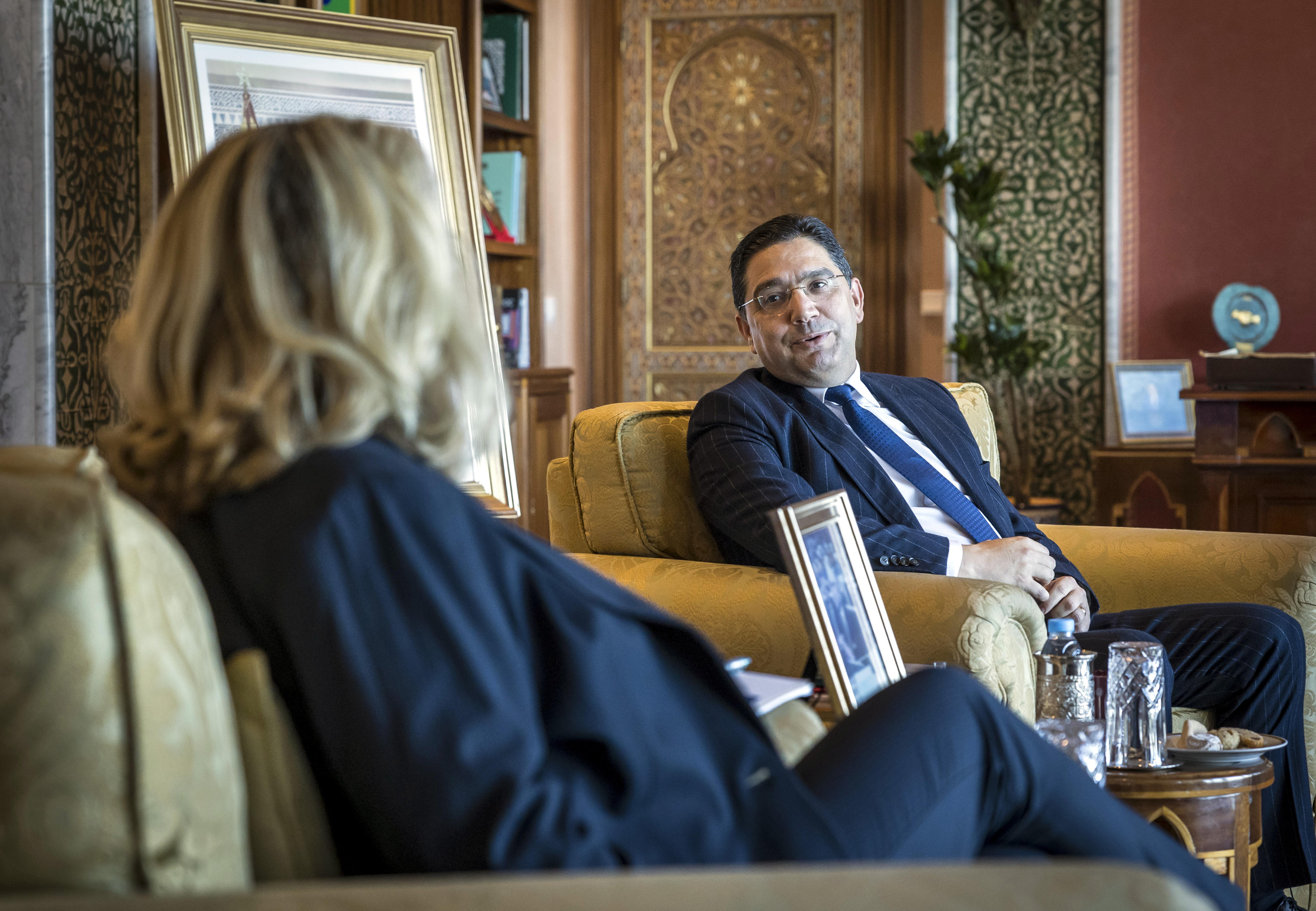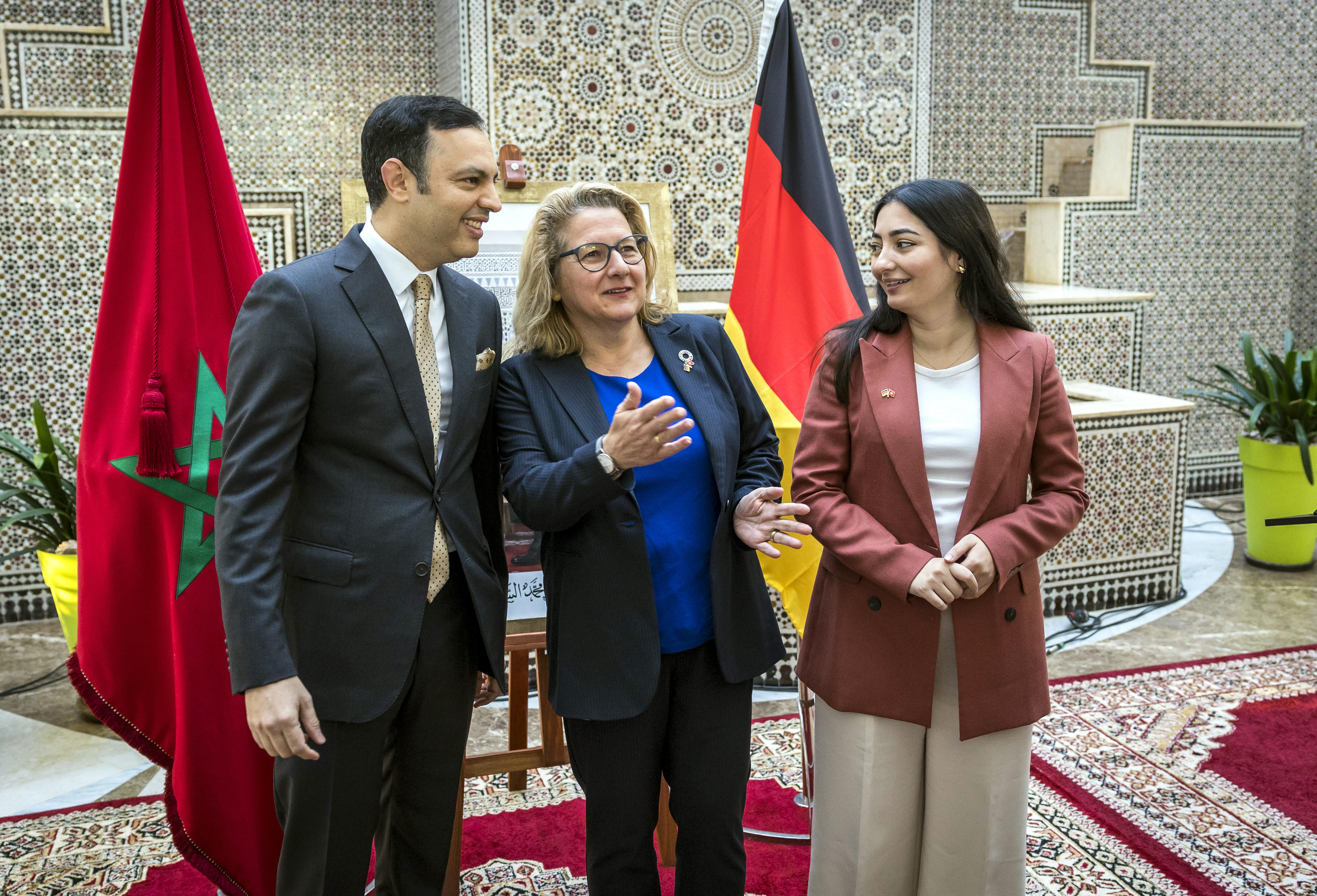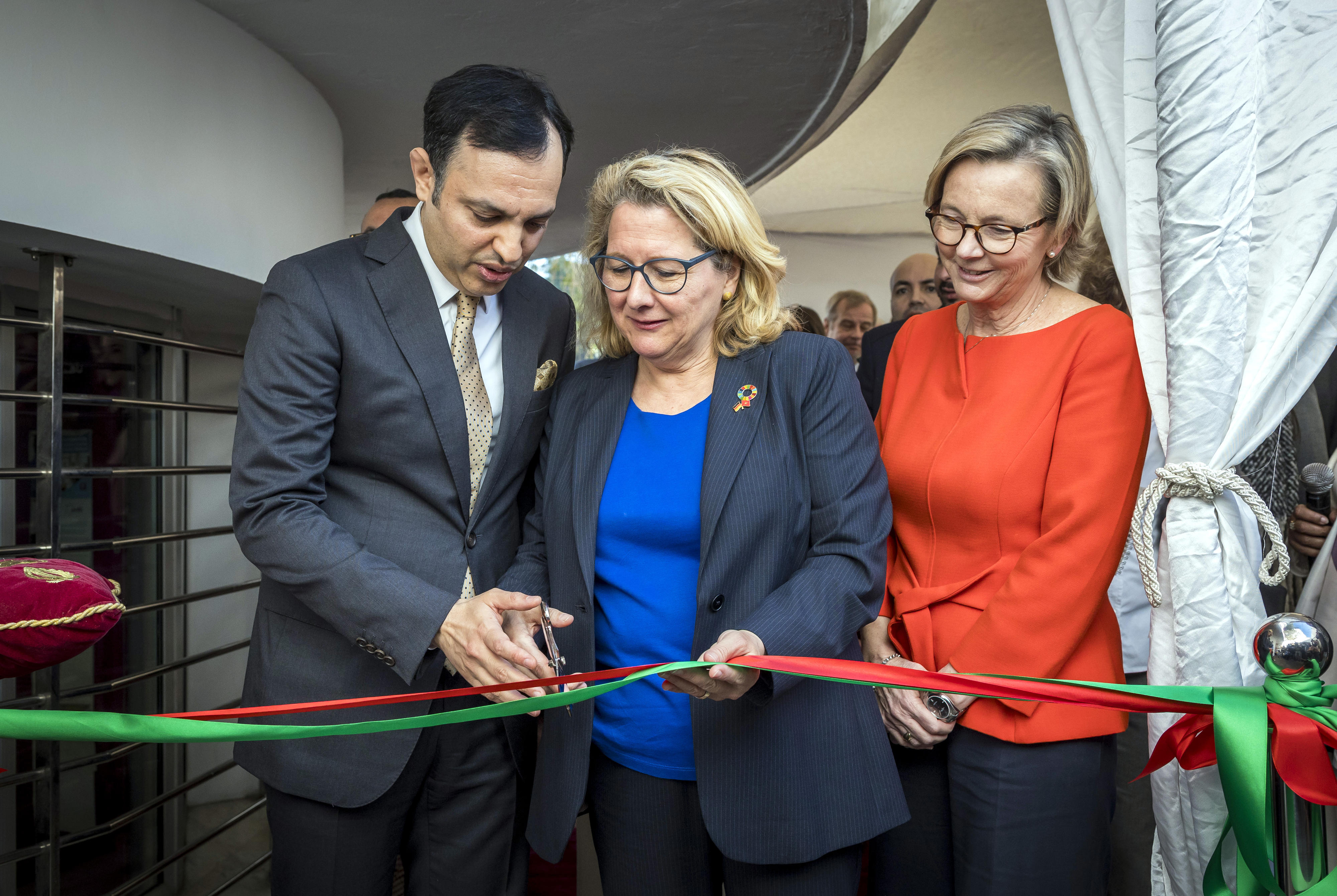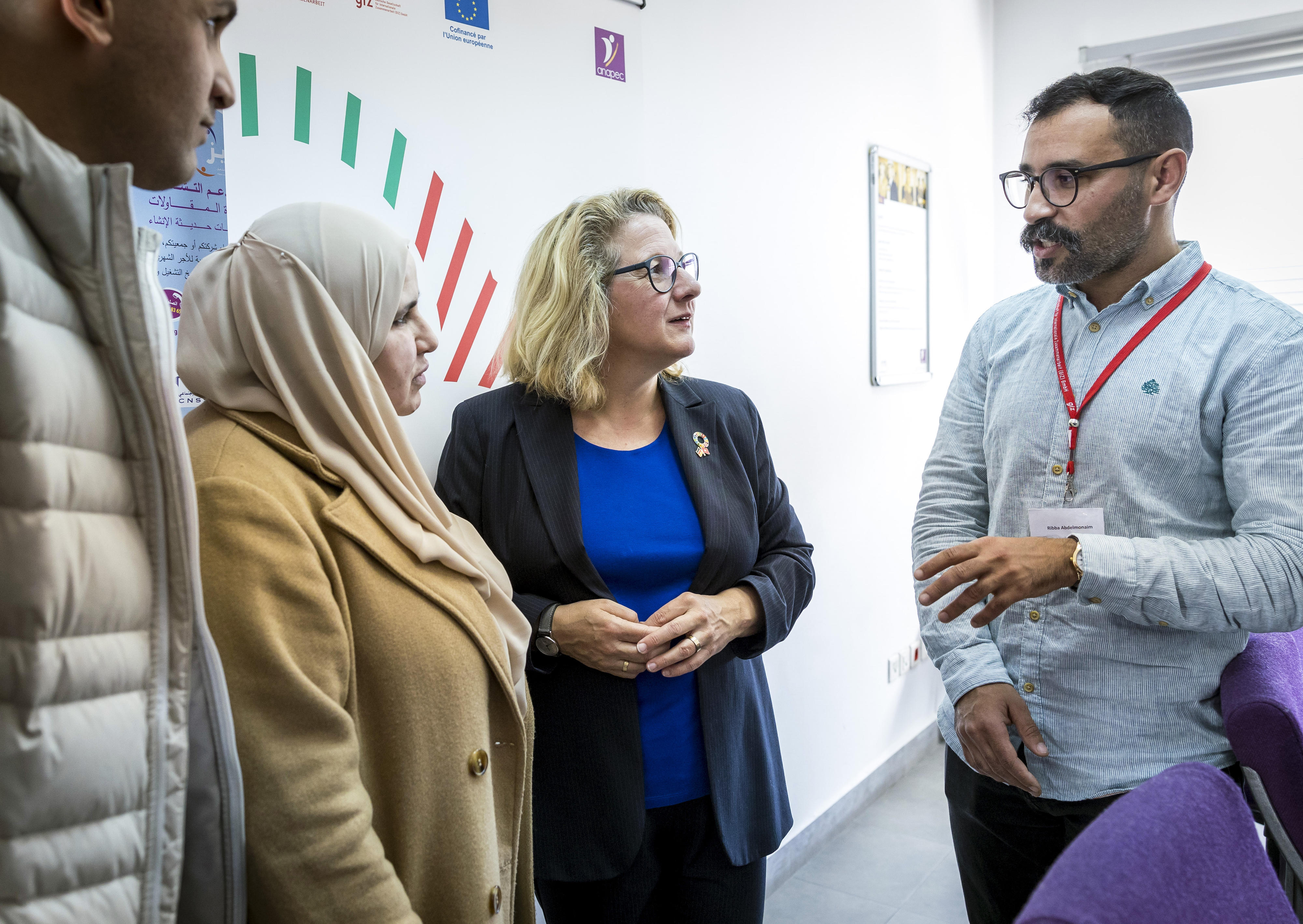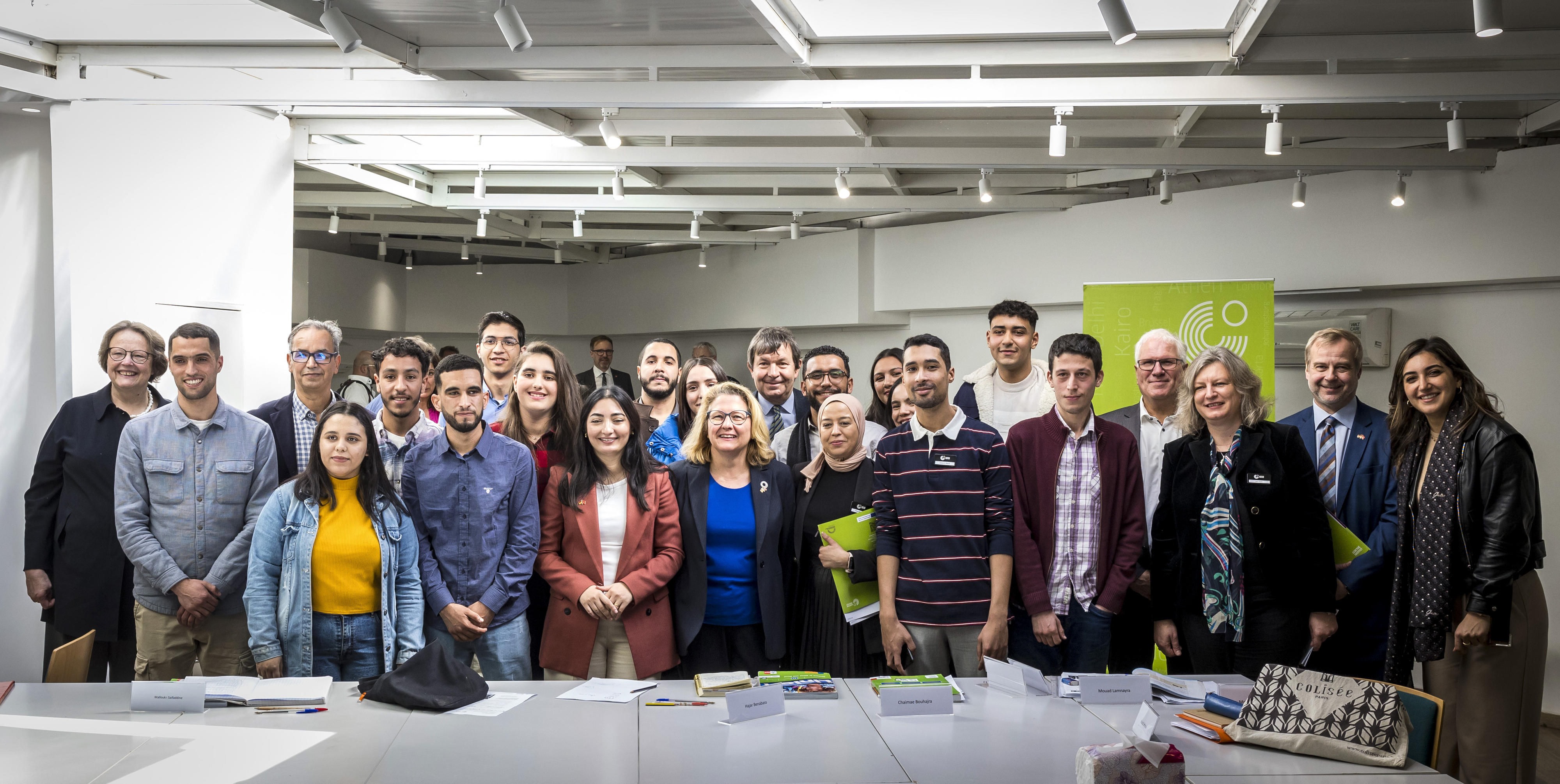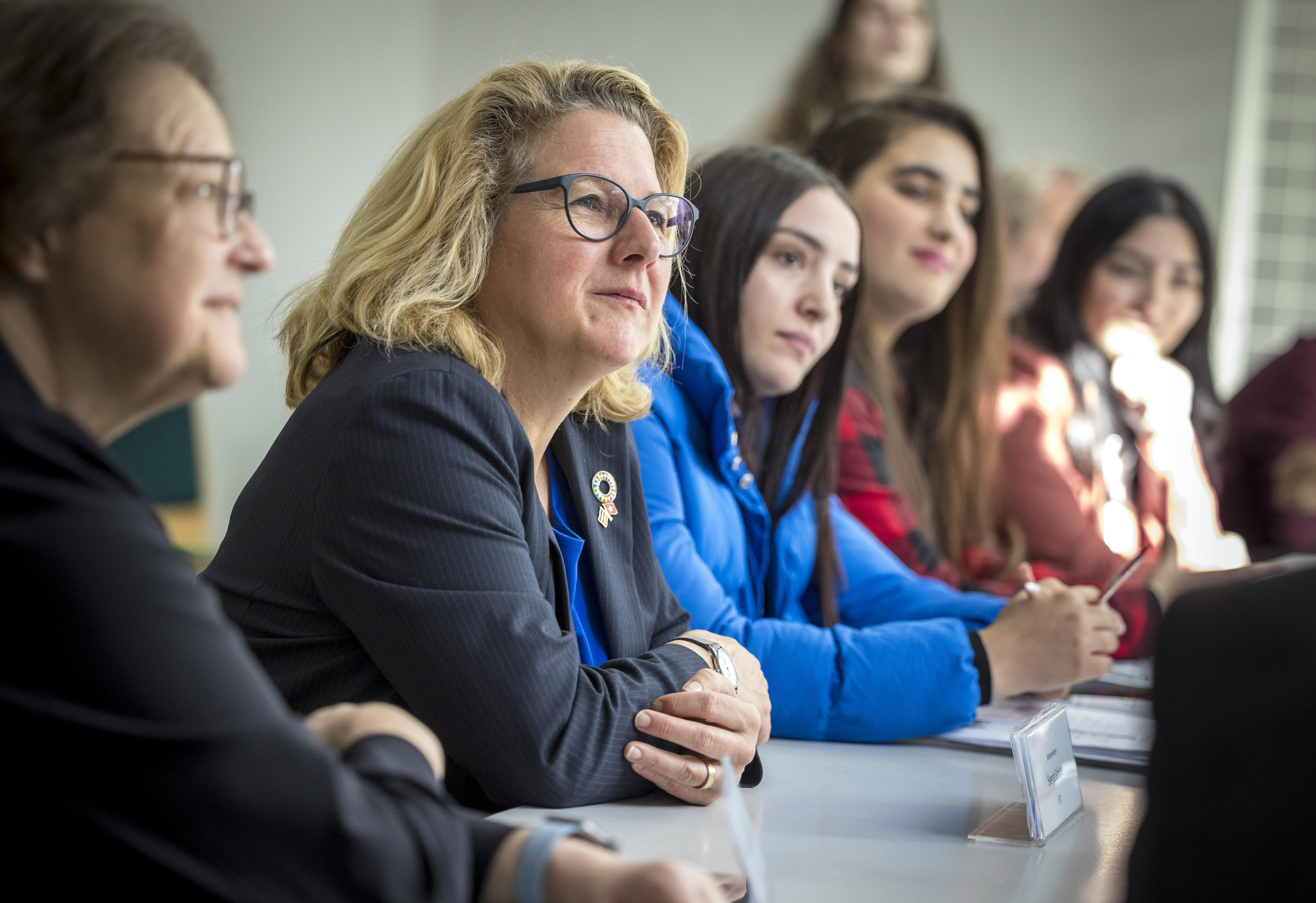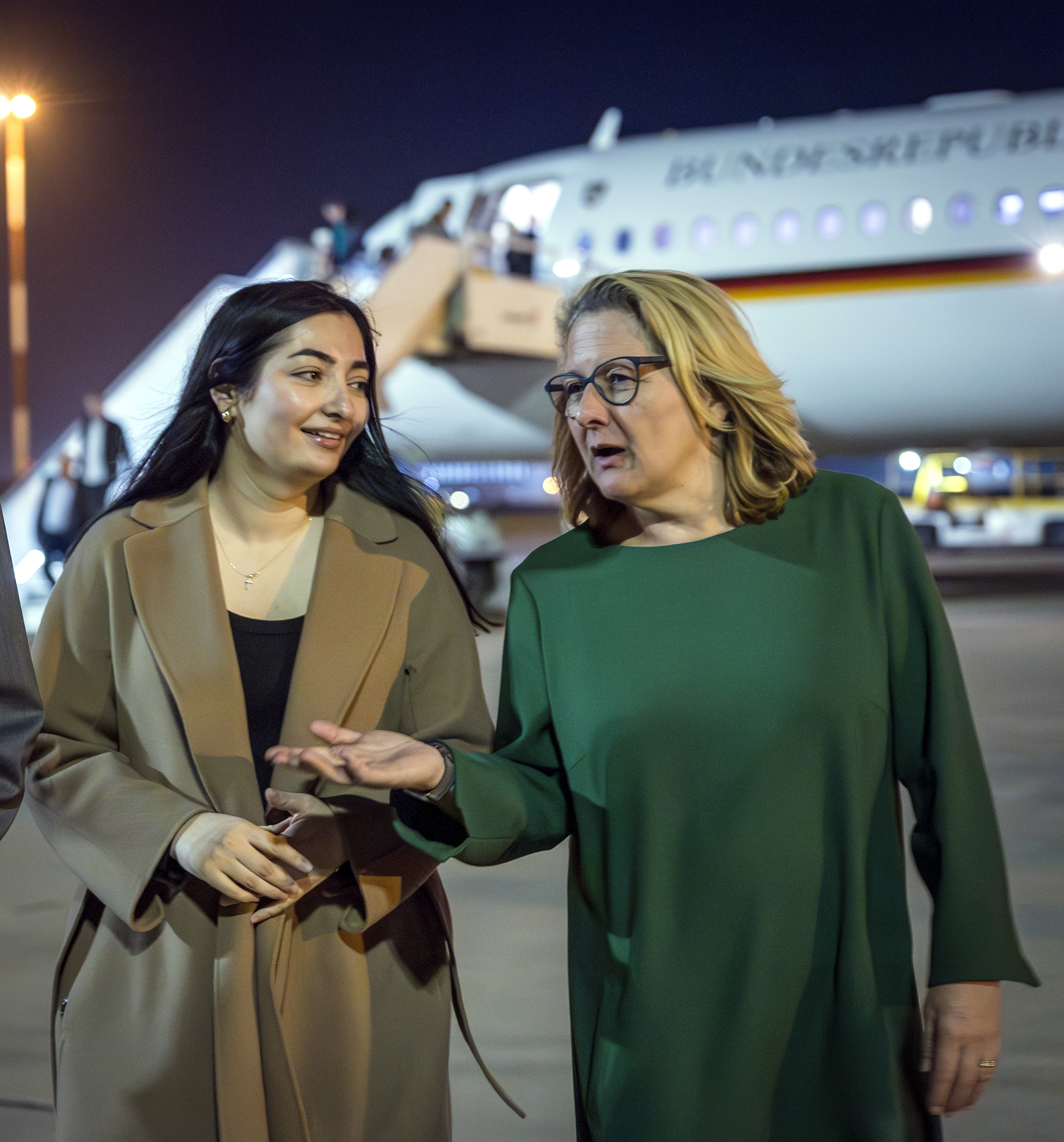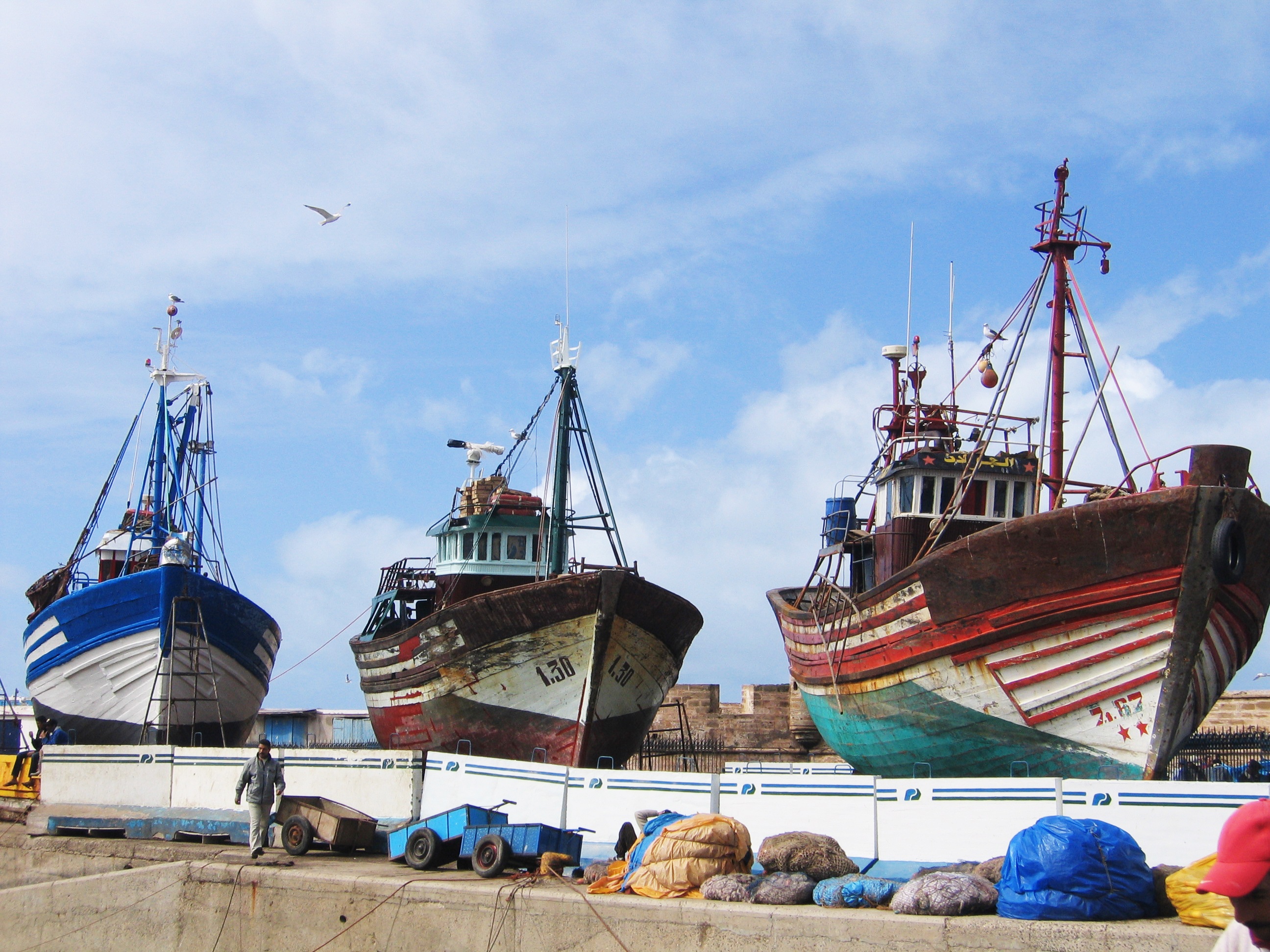For a coordinated modern migration policy Germany and Morocco strengthen cooperation to promote regular labour migration and integration from the outset
25 January 2024 | During their visit to Rabat today, Development Minister Svenja Schulze and the Federal Government Commissioner for Migration, Refugees and Integration, Minister of State Reem Alabali-Radovan, will launch two new projects to support the successful migration of (skilled) workers from Morocco to Germany. The Development Minister will also be meeting with the Moroccan Employment Minister Younes Sekkouri and Minister of Foreign Affairs Nasser Bourita to discuss how to balance interests in migration policy and what role development cooperation can play.
Minister Schulze said, “The fact is that Germany urgently needs more regular labour migration, including by skilled workers. This is the only way we can maintain our current prosperity. Morocco is a close partner that wants to create opportunities for its young, well-educated population. Together, we want to explore how we can benefit Germany, Morocco and migrants themselves by collaborating more closely. Our centres for migration and development play a key role in this. They will continue to support returnees from Germany in making a fresh start in their country of origin. In addition, they will also advise skilled workers on what jobs are currently in demand on the German labour market and what the entry requirements are. They can also help people find training programmes and German language courses. These are important steps for making Germany more successful in the global competition for skilled workers.”
Minister of State Alabali-Radovan said, “Germany has a long history as an immigration country. This government is now ensuring that we become a modern immigration country. This means taking a forward-looking approach to planning migration and integration and shaping them from the outset. For integration to be as effective as possible, integration measures need to take place before migration itself – this is known as ”pre-integration“. Our approach is based on other classic immigration countries that offer successful pre-departure or pre-arrival programmes. Morocco is one of the pilot countries for our pre-integration programmes. The pilot project by Diakonie (the social welfare organisation of Germany’s Protestant churches) and the language and orientation programmes offered by the Goethe-Institut mark the launch both of local migration advice, language and orientation programmes, and of advice and support for migrants in their transition from their country of origin to Germany. Because the earlier integration measures begin, the more effective they are long-term. We will be able to learn from the experiences and expectations here in Morocco – which is why this visit is so important to me. And we expect this pilot to set a precedent in other locations!”
While in Rabat, Development Minister Schulze will inaugurate the new branch of the Moroccan centre for migration and development – now the sixth in the country. It will be run by the Moroccan job centre and Germany and co-financed by the European Union. The centres for migration and development – a BMZ flagship initiative – act as central points of contact for people looking to find work or undergo training in Germany and Europe. Centres exist in Egypt, Ghana, Iraq, Morocco, Nigeria, Pakistan, Tunisia and Jordan, and preparations are underway for a centre in Indonesia. The centres follow the “triple win” principle – this means organising migration so that it benefits countries of origin, destination countries and migrants themselves. In the case of Morocco, for example, this means that centres will help electricians find work at German companies but not doctors, as Morocco wants to avoid a “brain drain” in this field.
As part of a pilot programme in Morocco, these services will be expanded to include pre-integration measures. Pre-integration covers migration advice, preparation for everyday life and work in Germany through language and orientation courses, and support for migrants in the transition from their countries of origin to the integration structures in Germany. This puts (skilled) workers in a better position to make a good start to their life and work in Germany.
The project visits emphasise the fact that attracting skilled workers is not a given; it is more effective if people can prepare for life in Germany in advance through good advice and training – in other words, if integration has already begun in people’s heads long before they move.
Morocco is a destination country, a transit country and a country of origin. Migration is therefore a prominent topic with many dimensions. The country is active in promoting and shaping the positive aspects of migration at a regional and international level. Thanks to its solid education system, a strong affinity with Germany and a good political environment, Morocco holds a great deal of potential for migration to Germany by (skilled) workers. All of these factors make Morocco a key partner for Germany when it comes to migration. Through its projects, the BMZ supports the Moroccan authorities in shaping migration policy and managing regular labour migration.
In addition to topics relating to migration, talks between the Development Minister and Morocco’s Employment Minister and Minister of Foreign Affairs will also address other areas of bilateral cooperation, in particular expanding cooperation in the areas of climate and energy.
